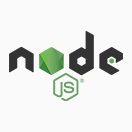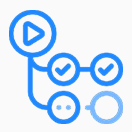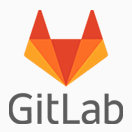Why EHR and EMR Software Development
Simplified Care Interactions
Custom EHR/EMR systems deliver systemized patient interactions through intuitive interfaces, instant data access, and workflow-optimized designs that reduce administrative burden.
Automated Clinical Workflows
Using EHR/EMR software, you can unite your systems to work together automatically. This eliminates duplication in tests and faster diagnosis by sharing the entire patient data with healthcare organizations and clinics.
Optimized Billing
By developing EHR/EMR software, we ensure that intelligent coding can catch errors before they result in high claim denials and administrative costs, ultimately saving you money.
Connected Integrations
Through EHR/EMR, you can achieve excellent data flow between hospital systems, laboratories, clinics, pharmacies, and imaging centers through HL7 and FHIR standards, as well as custom API integrations, for coordinated care.
Enhanced Security
Our EHR and EMR solutions are built using multi-layered security protocols, including end-to-end encryption, role-based access controls, and comprehensive safeguards for HIPAA compliance, to protect patient data effectively.
Long-term Growth
EHR/EMR systems can scale with a modular architecture that adapts to emerging healthcare technologies without requiring a system overhaul, allowing you to lead in the competitive healthcare market without any issues.
Our EHR/EMR Software Development Services
Custom EHR/EMR
We build custom EHR/EMR platforms enriched with features including patient record management, clinical decision support, e-prescribing, and integrated billing that align with your clinical workflows and specialty requirements.
System Integration
Our EHR and EMR engineers help you integrate various protocols, such as HL7, FHIR, and DICOM, with your existing healthcare systems, not only to share data without discrepancies but also to eliminate operational headaches.
Mobile App Development
At PureLogics, we develop secure healthcare mobile applications (iOS and Android) according to your functionality needs, like real-time sync, offline functionality, voice-to-text documentation, and secure messaging
Intelligent Clinical Support
Get strategic implementations of AI/ML to your healthcare software for real-time alerts, diagnostic assistance, and predictive analytics so that you can upgrade patient care using AI-powered capabilities.
Compliance Security
Connect with our certified healthcare professionals who assist you with healthcare software development, ensuring full compliance with HIPAA, PCI DSS, SureScripts, HITECH, NCPDP, and many other healthcare standards.
Data Migration
From system assessment and data transfer to staff training and ongoing support, shift your legacy healthcare data to AI-powered, modern EHR/EMR software with our comprehensive healthcare data migration services.















Top Technologies That We Utilize
- Backend
- Frontend
- Databases
- Cloud & DevOps






















Frequently Asked Questions
A digital version of a patient’s chart used within a single provider or practice is known as an Electronic Medical Record (EMR). It mainly tracks medical history, diagnoses, and treatments. It is solely designed for internal use with limited data sharing and low portability.
On the other hand, an Electronic Health Record (EHR) provides a more comprehensive view of a patient’s health across multiple healthcare providers and facilities. This enables interoperability, easy data sharing, and high portability. Due to these functionalities, it is essential for coordinated care throughout the healthcare system.
At PureLogics, we have trained healthcare professionals who follow the industry best practices for developing EMR and EHR systems.
Some of the necessary steps that we follow during SDLC :
- End-to-end encryption
- Role-based access control
- Secure authentication protocols
- Fully compliant with regulatory requirements
- Regular security checks
Yes. PureLogics has over 19+ years of experience working with top healthcare organizations, including Caring on Demand, Revealix, RxTrail, and MediScript. Connect with us to get healthcare-focused case studies.
How do you ensure the usability of the healthcare software solutions?
To ensure the usability of healthcare solutions, such as psychiatry EMR/EHR software, we follow a multifaceted approach through key strategies, including usability testing, clinical workflow integration, adherence to regulatory standards, error prevention, mobile-optimized design, and continuous improvement.
For developing healthcare software, we follow the typical process:
- Requirement gathering
- Compliance planning
- Design & development
- Compliance approval
- Testing & validation
- Deployment
- Integrations
Schedule your free 30 minutes call with one of our experts today.
We value long-term business relationships, and we’re guessing you do too.

